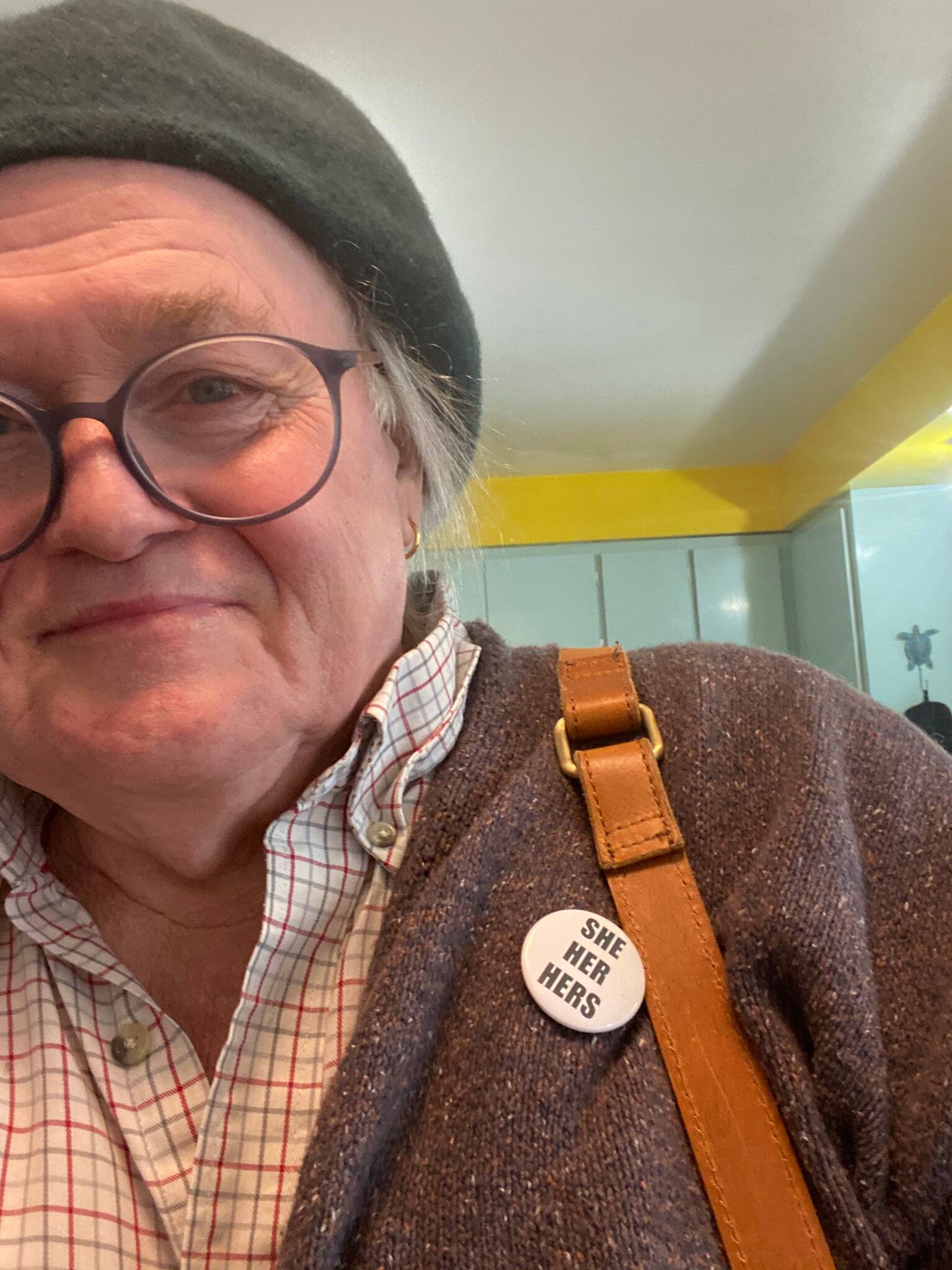… I am living out my
true life on this earth.
— Sharon Olds
February 7. It’s still dark when I leave the house a little after 6. The moon, just past full and low in the west, sails out from behind scattering clouds. With clearing skies, the temperature has dropped again. Yesterday’s slush crunches under foot. A thin glaze of ice covers the windshield.
The Dimond Park pool is already crowded when I get there, but one lap lane is still open, so I jump in and begin my morning meditation: swimming laps back and forth, over and over. It’s kind of monotonous, but it gives me a chance to think, to let my mind wander. A pool friend notes that this is how we keep ourselves alive.
She’s talking about swimming, of course, but I take her words broadly to include a wandering mind, a mindful meandering, directionless and playful among all the nebulous stuff of consciousness. This too keeps me alive.
As I’m swimming this morning, it occurs to me that it has been a year since I published the first of these columns and announced that I was coming out as myself, making a public confession of my lifelong ambivalence about gender norms. Rarely have I felt any particular interest in identifying as a man, except by default, but nor could I ever identify as a woman, despite my enjoying my feminine leanings.
But I wanted to make my private adventure public to encourage our current openness about gender and to do it in the face of all the violence against transgender folks and the slew of recent political moves here and around the country to restrict our freedoms and prohibit basic human rights, like our freedom to talk and read and write about things we need to talk about, conversations we need to have, and our freedom to care for our neighbors however we can, medically, psychologically, socially.
This column is a kind of conscientious objection, my exercising my freedom to follow my conscience and reject conventional ideas about gender.
I think I might have this conscientious objection thing in my blood. In 1972, after being denied Conscientious Objector status by the Selective Service, instead of dodging the draft by moving to Canada, I joined the Navy. The Vietnam War was still raging, and serving aboard a Navy destroyer simply confirmed my opposition to the war. So I sought a discharge from the Navy on grounds of conscientious objection.
Six months later, after 50 pages of written testimony (where I first started to learn to write like a grown-up) and innumerable interviews and hearings with Navy chaplains, psychiatrists, and lawyers,and a short time in a Marine brig, I was granted an Honorable Discharge on grounds of Conscientious Objection.
My final legal hearing, before a Navy lawyer in the Judge Advocate General’s Corps, was with a commander named Sanders (whom I kept accidentally referring to as Colonel). His inquiry focused on my having applied for a conscientious objector deferment from the draft. The Supreme Court had ruled that to be discharged from the military as a conscientious objector, one had to have become a conscientious objector after joining the service. Clearly, the Colonel argued, I had been a conscientious objector when I enlisted.
I argued successfully that the Selective Service had determined that I was not a conscientious objector, and since I had to abide by that decision, so would the Navy.
That was 50 years ago, and here I am all these years later still writing about conscientious objection, still objecting conscientiously, because I love my ambiguity about gender, just as I hated the war back in 1973.
We all live with ambiguity; not necessarily ambiguity about gender, but an ambiguity we all experience at the heart of being human, the ambiguity of facing in two directions at once.
We face inward, always looking at ourselves, rattling around in our own heads, having a continuous conversation with ourselves. And we face outward, our unique selves projected into the crowd of others around us, the numerous communities we live in, family and friends, work and worship and school, etc.
Shakespeare identifies this ambiguity in his 94th Sonnet, where he writes:
“The summer’s flower is to the summer sweet,
Though to itself it only live and die.”
Against the subjective life I live in myself and to myself, with whatever demons plague me and joys that sustain me, is the life I bring objectively to the community I live in, the colors of me amid a field of countless other colors.
(For you litterateurs, this is also one incredible achievement of James Joyce’s masterful short story, “The Dead.” With an oblique nod to Shakespeare, Joyce integrates in one narrative the subjective and objective lives of his protagonist Gabriel Conroy.)
We see this ambiguity in the term “conscientious objection” itself, a kind of oxymoron that faces in those two directions, juxtaposing who I am to myself, my conscience (which Saint Thomas Aquinas defines simply as a person’s ability to distinguish for herself right from wrong), and how I behave as a part of the character of my community.
Like it or not, we are responsible for the sweetness of the summer around us. Its character depends on ours.
Facing inward and outward: we all want the freedom to live our lives as we see fit–the freedom to say what we think, to read and write what we want, to own a gun, and to worship or not as our conscience dictates, all that good stuff in the Bill of Rights.
The genius of America is the recognition that the best way for me to preserve and protect my own freedoms–and probably the only way–is for me to work to preserve and protect yours.
• Jane Hale lives in Juneau with her partner and their two dogs. “Coming Out” appears biweekly on the Empire’s neighbors page.

